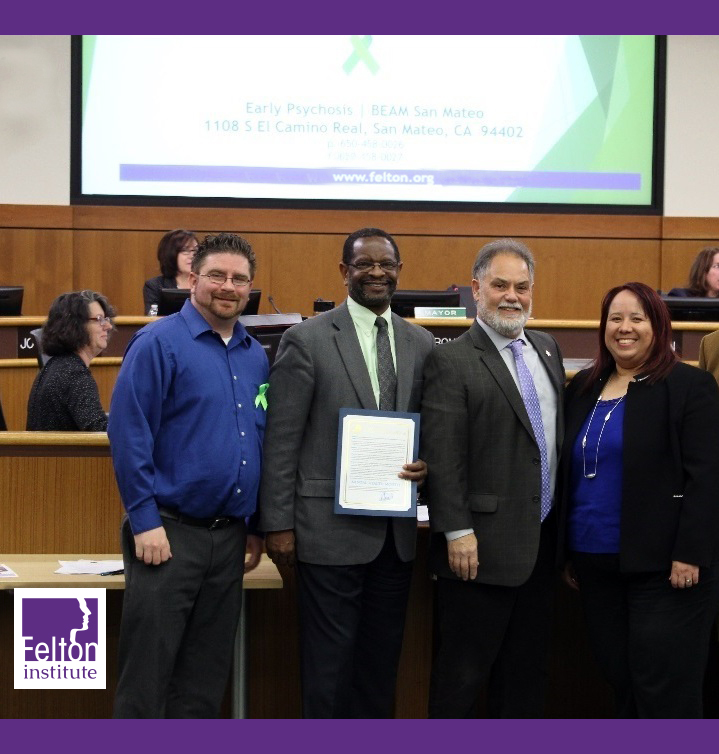“Anything human is mentionable, and anything mentionable can be more manageable. When we can talk about our feelings, they become less overwhelming, less upsetting, and less scary.” Fred Rogers

The City of San Mateo commended Felton Institute during Mental Health Month 2018
In early March 2020, the World Health Organization (WHO) declared a world pandemic. The virus spread worldwide within months, and countries declared mandatory stay-at-home directives, closing schools, business, and public places. People around the world united to push for public health, at an extreme personal sacrifice. Globally, survival became the number one priority with varying responses of how to best achieve it.
Two months into sheltering-in-place and with the easing of certain restrictions, the outcome of the COVID-19 pandemic is impossible to predict. We can study the pandemics in history and integrate current data to best determine our strategy in dealing with it. But as we learn more and adapt to our ever-changing reality of life, we must remember to take care of our mental health, while navigating these challenging times.
How are you feeling today? What is your state of mind; what is the state of your heart? As our systems go into high-gear and operate in a sustained crisis mode, we must not neglect our mental health.
Mental health is often misunderstood, especially by those who have not experienced a mental health crisis. How we think, feel, and act depends on the state of our mental health. Mental health includes our emotional, psychological, and social well-being, and is essential in every stage of our life – from childhood to our twilight years. While the average adult might be struggling with the stress of this global crisis, managing emerging emotions and grappling with the “new normal”, we are now seeing just glimpses of the toll that the pandemic is taking on the mental health of our vulnerable populations and the future implications. The needs are great among those who are already in challenging life situations and who may be suffering from mental health conditions.
With a tradition of over 131 years of innovation in social services, Felton Institute continues to provide comprehensive mental health programs in our underserved communities. Our mission is to respond to the mental health needs of men, women and children at every stage of life by providing comprehensive programs, advocacy and support for individuals and families.
Felton’s Early Psychosis Program innovative, strengths-based treatment models have won awards and through (re)MIND, BEAM, and BEAM UP serve approximately 350 individuals in five Northern and Central California counties each year. Felton’s Early Psychosis Division is a national leader with its comprehensive treatment program for early psychosis.
This month we invite you to consider a contribution to Felton Institute for its programs. Felton’s Early Psychosis Program is one of Felton’s award-winning programs, provided in the San Francisco Bay Area.
Donating is easy! You may choose to give to Felton Institute today by visiting felton.org/donate to donate online.
About Felton Institute: Founded in 1889, Felton Institute responds to human needs by providing cutting edge, evidence-based mental health and social services that transform lives. Felton Institute is a tax-exempt organization registered 501(c)(3) nonprofit under EIN 94-1156530.
Offering more than 50 acclaimed and honored programs that address homelessness, mental health, prenatal, adolescent, adult and senior needs, Felton Institute provides services in San Francisco, Alameda, San Mateo, Marin, and Monterey counties.
Felton is named for its social services pioneer and executive director Dr. Katharine “Kitty” Felton who was called the ”conscience of San Francisco” and was committed to ensuring that children and families in crisis have access to social services and resources in order to help them build upon their inherent strengths and develop self-sufficiency. www.felton.org
